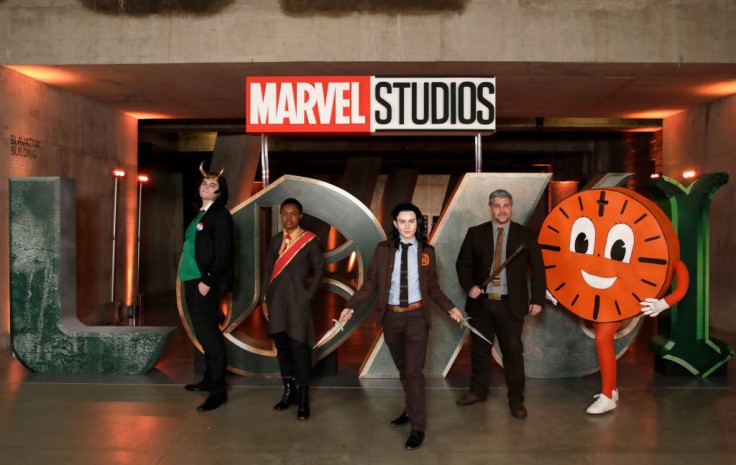
The first season of "Loki" ended last July 14, but fans are not yet quite over it. The Multiverse has already been introduced to the Marvel Cinematic Universe at the end of "WandaVision" and looks like a big factor in the plot of the majority of MCU's Phase Four. As with the multiverse having a lot of branches, fans have quite a lot of questions.
"Loki" head writer Michael Waldron, who is also in charge of the script for "Doctor Strange And The Multiverse of Madness," tries to clear up some of the confusion as they wait for the second season of "Loki" and as Phase Four continues on.
Marvel Cinematic Universe Multiverse
"Loki" started off when fans last saw the trickster god in "Avengers: Endgame." It was after he was able to use the tesseract to escape being captured by the Avengers back in 2012. This led to him being arrested by the Time Variance Authority or TVA for disrupting the Sacred Timeline.
Over the course of six episodes, fans followed along with Loki (Tom Hiddleston), Agent Mobius (Owen Wilson), and the Loki Variant names Sylvie (Sophia Di Martino), who really didn't feel like a Loki variant at all because of how she grew up. They tried to crack down on the malicious structure of the TVA. The MCU also introduced a plethora of Loki variants that were all nods to the Lokis of the comic books.
Are you ready for the #Marvel multiverse to crack wide open? (Art via: @Spdrmnkyxxiii) pic.twitter.com/2zMC9pIEiB
— Binge Watch This (@BingeWatchThis_) July 27, 2021
In the end, the finale showed Loki and Sylvie finding and meeting "He Who Remains" (Jonathan Majors), who is literally the remaining variant of himself and a version of Kang the Conqueror (though not yet explicitly mentioned since Kang will make his official debut later on in Phase Four0).
Sylvie shoved Loki to a separate timeline while taking matters into her own hands by attacking He Who Remains, unleashing the multiverse.
Fans were also quick to notice how both the finale "Loki" and "WandaVision" synced up down to when Agatha hit the ground and He Who Remains dropped something on his desk.
There are a lot of loose ends, a lot of questions, and a lot of confusion this early on in Phase Four as the multiverse has yet to unfold.
Michael Waldron explains why there are so many #Loki variants if there is one 'Sacred Timeline' pic.twitter.com/chLijrsm5K
— ScreenTime (@screentime) July 30, 2021
'Loki' Multiverse Explained
Michael Waldron, head writer for "Loki" and in charge of penning "Doctor Strange And The Multiverse of Madness," tried to clear up some of the confusion regarding the Multiverse in his recent interview with ScreenCrush.
He explained that the writers and MCU's approach with time travel were with the philosophy that time is always happening. Time is always occurring all at once, and those make up the different timelines and different universes. It is in the minute little fluctuations in each instance of time that differentiates one universe and timeline from the other.
As he illustrated it, he could be having the same conversation now, and in another instance, the conversation is being carried 10 seconds in the future and in another instance, 10 seconds in the past. In these separate instances, he could say "Hello" while the other Waldron in another timeline can say "hey," and the other timeline Waldron can flat out refuse to take part in the conversation.
A multiverse of infinite possibilities awaits.
— What If...? (@whatifofficial) July 28, 2021
❤️ this tweet to receive reminders when new episodes of Marvel Studios' #WhatIf become available every Wednesday starting August 11 on @DisneyPlus. pic.twitter.com/mpZUVbKXXn
So timelines are affected by the little fluctuations in the choices made by each person in their separate timeline. Then you factor in time travel, like what Loki has done for the past six episodes and then the conclusion is that "time travel basically is the multiverse," as Waldron said.
Waldron also pointed out how the Sacred Timeline isn't necessarily a straight line and could even look like intertwined strands of a rope. The TVA stepsped in when something branches off that could produce a new timeline that could produce a version of He Who Remains, and that is what they are guarding against.
Though it does not completely smoothen things out, it does seem like Waldron has a firm grasp on these concepts, Screen Rant noted. He will surely flesh out the concept of the multiverse in "Doctor Strange in the Multiverse of Madness."
It is known that Elizabeth Olsen will reprise her role as the Scarlet Witch in the "Doctor Strange" film and Tom Hiddleston is rumored to be in the movie as well. "What If...?" also deals with alternate realities and the third installment of "Spider-Man" also hints at tying into the implosion of the multiverse.
The next film in the MCU lineup is "Shang-Chi: And the Legend of the Ten Rings" which is scheduled to premiere later this September.









